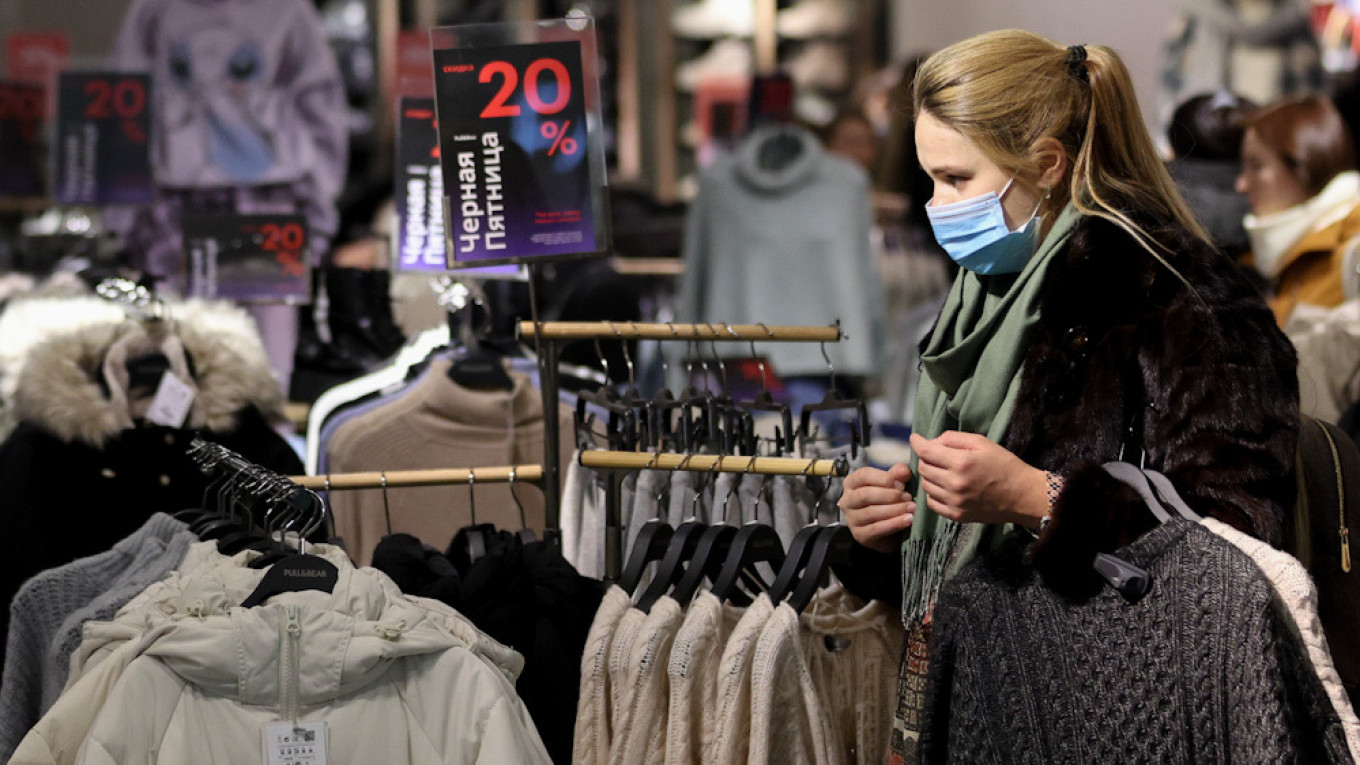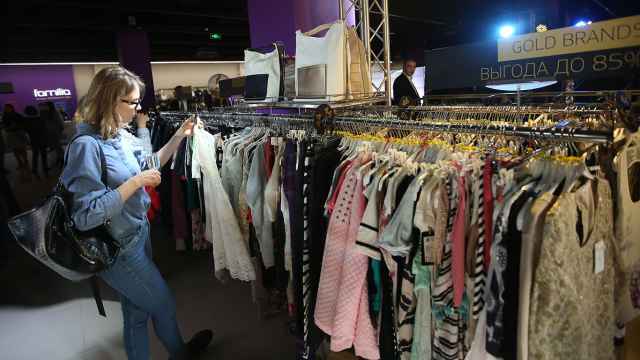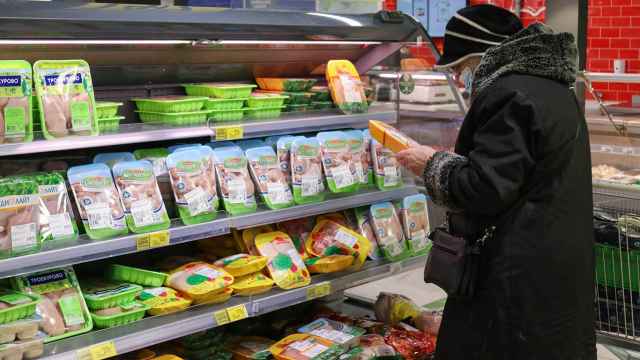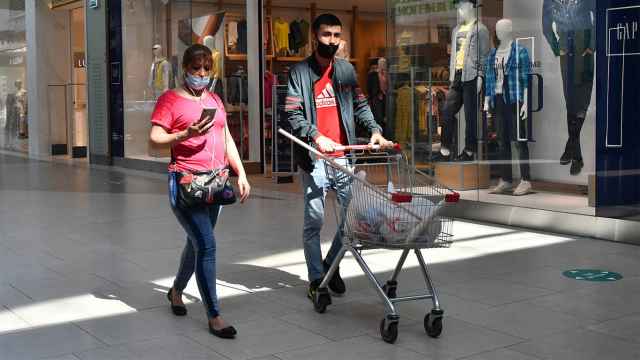Spending on Black Friday was down by almost 40% in Russia, payments data from Sberbank, the country’s largest lender, has shown.
While e-commerce sites reported some of their best Black Fridays ever, Russian shoppers stayed away from stores and malls as the country has reported record numbers of new coronavirus infections and deaths in recent days.
Unlike other countries in Europe, Russia has not rolled out a second lockdown or partial quarantine, keeping its stores, restaurants, bars and workplaces largely open in an attempt to limit the economic damage of the second wave. But consumers, faced with infection risks and after a hit to living standards, stayed away, with overall spending down 39.2% compared with 2019, Sberbank said.
Spending on Black Friday was so weak, in fact, that it scored the second-lowest reading on Sberbank’s consumer activity index for any Friday since June 5.
That was despite heavy promotion and discounting by Russian retailers, who have embraced the U.S. shopping holiday, which falls on the Friday after Thanksgiving, over recent years, in a bid to boost sales among consumers who have seen living standards plunge and then stagnate as a result of the 2014-16 economic crisis.
Russia’s retail sales are still running below pre-coronavirus levels, though the latest data for October came in ahead of economists’ expectations, with spending down 2.4% across the month compared to last year.
Online spending on Black Friday was up by 61% compared with a usual weekend, though given the nascent state of Russia’s e-commerce industry this was not enough to make up for the plunge in in-store activity. Russia’s two largest online retailers — Wildberries and Ozon — reported sales had doubled or nearly doubled on Black Friday compared with last year. Market leader Wildberries said 1.3 million customers made a purchase on Black Friday, up from 700,000 last year.
However, given the rapid acceleration of Russia’s online retail this year, those numbers could represent a normal trading day. For instance, revenue at both Wildberries and Ozon more than doubled during the first six months of the year compared with 2019 levels, research by Renaissance Capital previously showed.
A Message from The Moscow Times:
Dear readers,
We are facing unprecedented challenges. Russia's Prosecutor General's Office has designated The Moscow Times as an "undesirable" organization, criminalizing our work and putting our staff at risk of prosecution. This follows our earlier unjust labeling as a "foreign agent."
These actions are direct attempts to silence independent journalism in Russia. The authorities claim our work "discredits the decisions of the Russian leadership." We see things differently: we strive to provide accurate, unbiased reporting on Russia.
We, the journalists of The Moscow Times, refuse to be silenced. But to continue our work, we need your help.
Your support, no matter how small, makes a world of difference. If you can, please support us monthly starting from just $2. It's quick to set up, and every contribution makes a significant impact.
By supporting The Moscow Times, you're defending open, independent journalism in the face of repression. Thank you for standing with us.
Remind me later.






